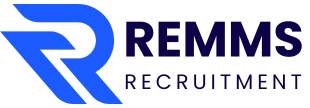
In today’s dynamic labor market, finding and selecting the right talent is more important than ever for organizations. As businesses strive to maintain a competitive edge, they often face a key question: should they opt for a recruitment agency or in-house hiring? The debate around recruitment agency vs in-house hiring highlights the unique advantages and challenges of each approach, with significant implications for the efficiency and effectiveness of the recruitment process.
This article explores a comparative analysis to help organizations make informed decisions based on their specific needs and goals.
Understanding Recruitment Agencies
Recruitment agencies are third-party firms dedicated to finding and placing suitable candidates for various job openings. They operate across numerous sectors, leveraging their specialized knowledge and extensive networks to source potential hires.
These firms handle various aspects of the hiring process, which can include job advertising, candidate screening, interviewing, and even negotiating salary offers.
One of the most significant advantages of using recruitment agencies is the specialized expertise they bring. Many agencies focus on specific industries or job sectors, allowing them to cultivate deep insights into market trends, salary benchmarks, and candidate qualifications.
This expertise enables them to identify and attract high-quality talent, which can be especially valuable in highly competitive job markets.
The Benefits of Recruitment Agencies
Timing is critical in recruitment, especially when organizations are eager to fill positions quickly. Recruitment agencies excel in this area due to their established networks and streamlined processes. They often come equipped with pre-vetted candidates, allowing them to provide a shortlist of qualified applicants faster than an in-house team might be able to do.
This speed can be a game-changer, particularly in dynamic industries where the talent pool is limited and the demand for skilled workers is high. Additionally, recruitment agencies offer organizations access to a broader candidate pool, including passive job seekers who may not actively be looking for new opportunities but are open to offers.
This wider reach can uncover hidden talent that might not be accessible through traditional in-house recruitment efforts. Flexibility is another advantage that makes recruitment agencies appealing. Organizations can engage agencies on an as-needed basis, allowing them to scale resources up or down depending on seasonal hiring needs or specific projects.
When evaluating recruitment agency vs in-house hiring, these benefits highlight why agencies are often favored for urgent or large-scale hiring needs.
The Drawbacks of Recruitment Agencies
Despite these advantages, working with recruitment agencies does come with its downsides. A significant consideration is cost. Agencies typically charge fees that range from a percentage of the hired candidate’s salary to flat rates, which can escalate quickly, particularly for senior or specialized roles.
For organizations tight on budgets, these costs can be a significant barrier. Another concern lies in the degree of control that companies have over the hiring process. Engaging third-party agencies means entrusting them with a critical aspect of the business, and this can lead to misalignment with the company’s culture and values.
Without direct involvement, organizations may find that the selected candidates do not fit well within their existing teams. The variable quality of recruitment agencies is also an important factor to consider. Not all firms possess the same level of expertise or commitment. For those weighing recruitment agency vs in-house hiring, it’s crucial to recognize that not every agency will align seamlessly with internal expectations and standards.
Exploring In-House Hiring
In contrast to recruitment agencies, in-house hiring involves an organization managing the recruitment process internally, typically supported by a dedicated HR team. This approach allows companies to handle everything from job postings to candidate evaluations and final hiring decisions.
One compelling advantage of in-house hiring is cost-effectiveness. While there are fixed costs associated with an in-house recruitment team, this approach can be more economical in the long term, especially for companies that frequently hire new staff. By managing the recruitment process internally, organizations can avoid the financial burdens associated with agency fees.
In-house hiring teams also have a distinct advantage when it comes to cultural fit. Having a deep understanding of the organization’s values, mission, and culture allows HR personnel to assess candidates thoroughly and align them with the existing team and ethos.
This knowledge ultimately contributes to a more cohesive workplace and can lead to higher employee retention rates.
Furthermore, organizations maintain control over the recruitment process when hiring in-house, allowing for tailored strategies that can be adjusted based on specific hiring needs. This direct oversight enables firms to implement an approach that best reflects their organizational culture and hiring priorities.
Challenges of In-House Hiring
While the in-house hiring approach presents various benefits, it is not without its challenges. One notable drawback is the resource intensity associated with managing recruitment internally. Tasks like crafting job descriptions, conducting interviews, and negotiating offers demand considerable time and effort, especially in large or complex recruitment campaigns.
For organizations without adequate resources or personnel, this can become overwhelming and lead to inefficiencies. Another complication arises from limited reach. In-house recruitment teams might not access as broad a talent pool compared to specialized agencies. Though they can utilize job boards and social media platforms to source candidates, there may be drawbacks when trying to engage passive candidates who are not actively seeking new job opportunities.
Scalability is also a concern for in-house recruitment. Organizations may find it challenging to adapt their hiring processes to meet urgent demands or fluctuations in workforce needs without established structures and resources. When comparing recruitment agency vs in-house hiring, these limitations highlight why some companies may struggle to meet hiring goals solely through internal efforts.
A Side-by-Side Comparison
When comparing recruitment agencies and in-house hiring, several key areas emerge as notable points of differentiation. Cost is one primary factor; recruitment agencies usually represent a higher upfront investment, whereas in-house recruitment can be cheaper in the long run if managed effectively.
Speed is another area where agencies often excel, providing quicker placement of candidates thanks to their wide networks and existing relationships.
The quality of hires remains a paramount consideration. While recruitment agencies can unearth passive candidates and have dedicated resources for sourcing top talent, in-house teams can provide better assessments of cultural fit, a factor that plays a significant role in long-term success and employee satisfaction.
Organizations also need to consider the level of control they wish to maintain over the hiring process. In-house teams offer complete control, while agencies necessitate a level of trust and collaboration that some organizations may find uncomfortable.
As recruitment needs vary, many organizations are now adopting a hybrid approach, combining the benefits of both methods.
By leveraging recruitment agencies to fill urgent roles temporarily while focusing on in-house hiring for long-term positions, companies can effectively tailor their strategy to meet their operational goals.
Conclusion
Choosing between recruitment agencies and in-house hiring is not merely a matter of preference; it involves a thoughtful evaluation of an organization’s specific context, budget, urgency, and long-term recruitment goals.
Each method presents its distinct advantages and challenges, and understanding these can empower organizations to make strategic decisions that drive successful hiring outcomes.
Ultimately, organizations that blend both recruitment strategies may discover the ideal balance—maximizing the strengths of recruitment agencies while ensuring their in-house teams maintain their cultural integrity and control.
In an ever-evolving labor market, such adaptability will be crucial for companies seeking to attract and retain top talent.
